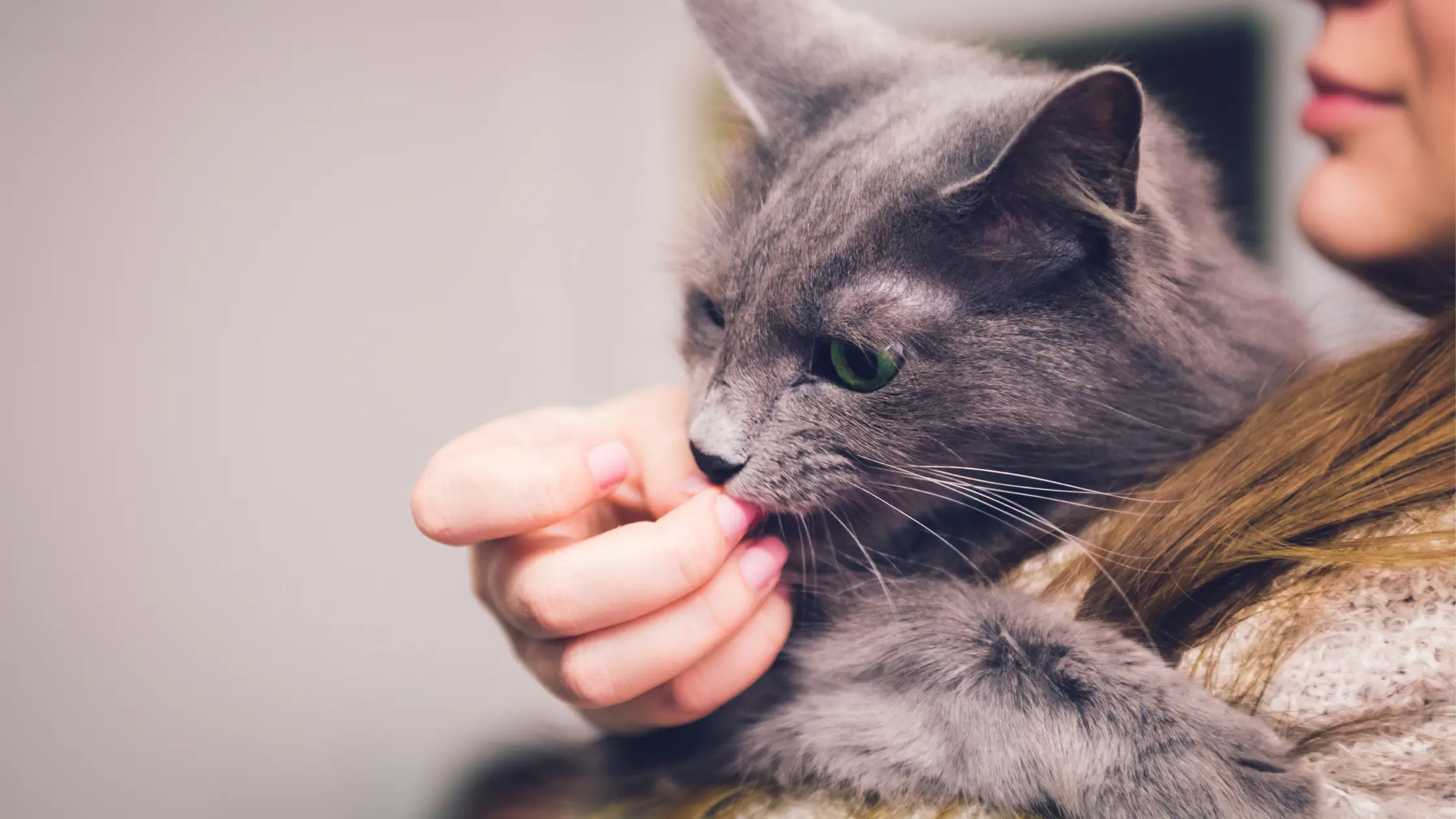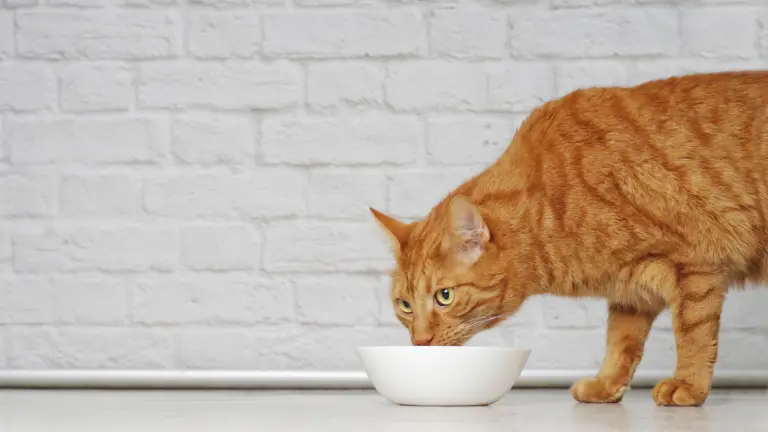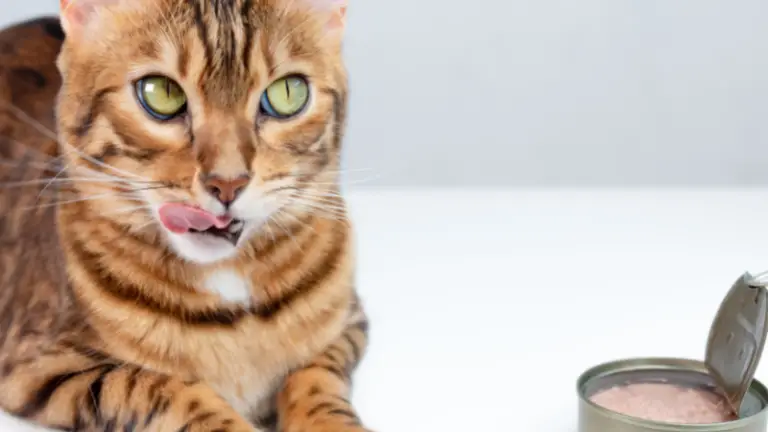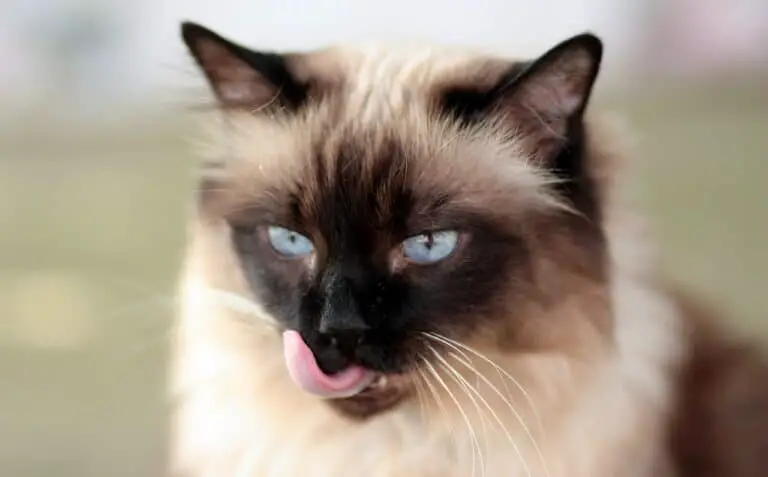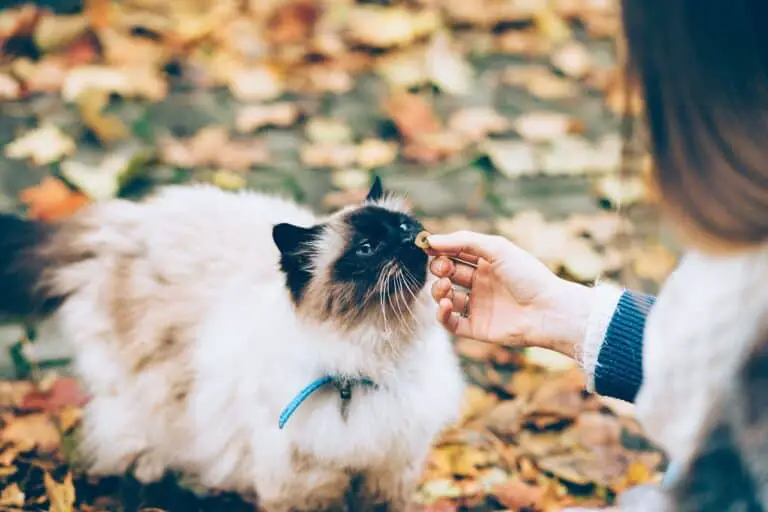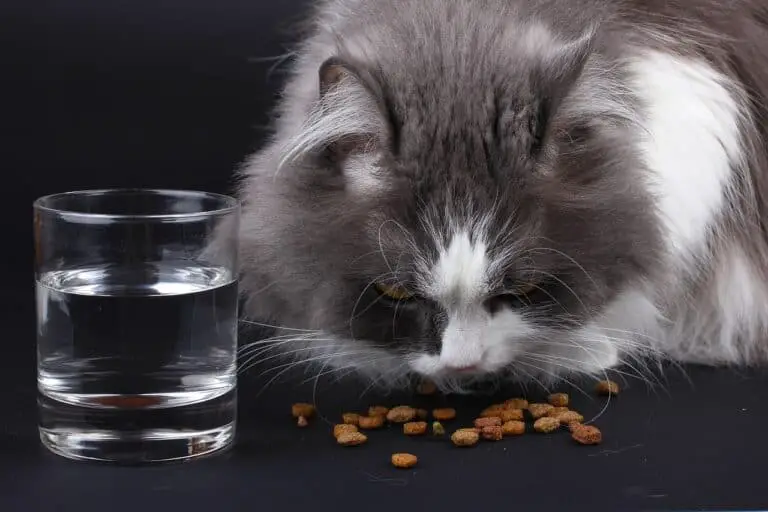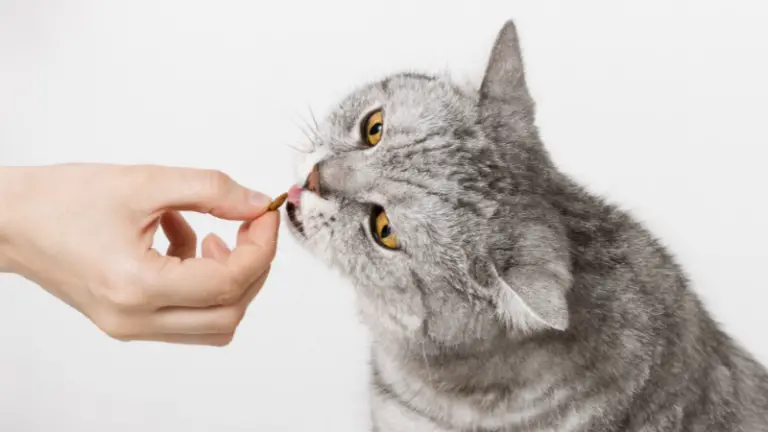CAN CATS EAT CANTALOUPE? 4 REASONS THEY CAN AND CANNOT
Can cats eat cantaloupe? Some cats can be very curious, and despite the fact that they are not accustomed to sugar, they might still like the taste of this fruit.
Cats can eat cantaloupe in small quantities as a treat. Cantaloupe is a good source of vitamins A and C and potassium, and it’s generally considered safe for cats to consume in moderation.
Let’s know more about cantaloupe.
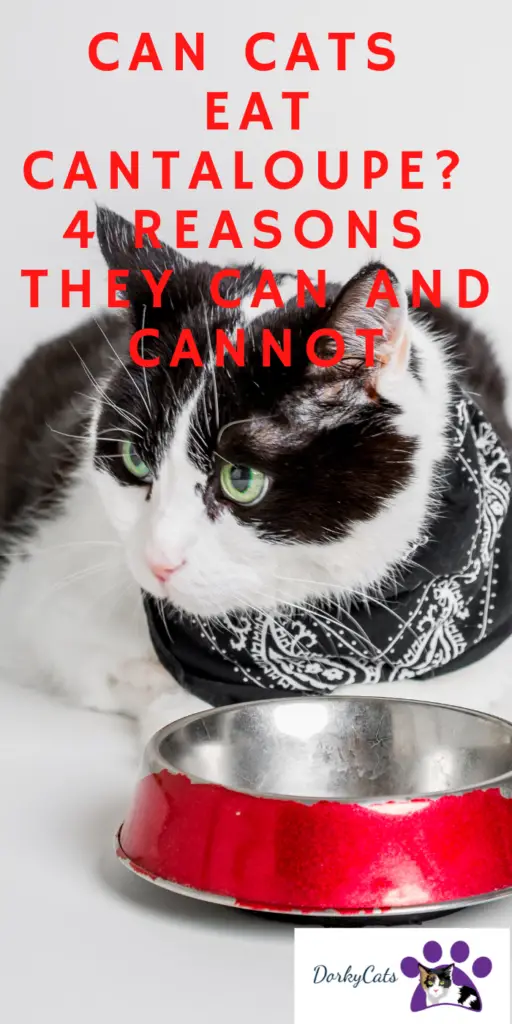
CAN CATS EAT CANTALOUPE?
Cats have to put their mouse and nose everywhere. Surely such a sweet-tasting fruit is a nice treat for them. If they have never seen it and you place it on the table, some cats at least will try to smell it and lick it.
Cats can eat cantaloupe in moderation as an occasional treat, not as the primary food in their diet.
Cats are obligate carnivores and have a dietary requirement for protein and fat, not carbohydrates. As such, cantaloupe should only be offered in small amounts and should not make up a significant portion of a cat’s diet.
If you have concerns about offering cantaloupe to your cat, it’s best to consult a veterinary professional for guidance.
WHAT ARE THE BENEFITS OF CANTALOUPE FOR CATS?
Even in small amounts or when offered as an occasional treat, cantaloupe can provide some good nutritional benefits for cats.
Cantaloupe provides the following benefits for cats:
1. SOURCE OF VITAMINS
Cantaloupe is a good source of vitamins A and C, which are essential for a cat’s immune system and skin health.
2. HYDRATION
Cantaloupe is made up of mostly water, which can help keep your cat hydrated.
3. FIBERS
Cantaloupe contains fiber, which can help with digestion and regulate bowel movements.
4. ANTIOXIDANT
The vitamins and minerals in cantaloupe can help protect your cat against oxidative damage and may reduce the risk of specific health issues.
WHAT ARE THE CONS OF CATS EATING CANTALOUPE?
There are a few potential drawbacks to feeding cantaloupe to cats:
- High in sugar: Cantaloupe is high in sugar, and a diet high in sugar can lead to obesity, diabetes, and other health issues in cats.
- Allergic reaction: Some cats may be allergic to cantaloupe or other fruits, which can cause symptoms such as itching, skin rashes, and digestive issues.
- Incomplete nutrition: While cantaloupe is a good source of vitamins and minerals, it does not provide all of the nutrients that cats need to thrive. Cats require a diet that is primarily made up of protein and fat, not carbohydrates.
- Choking hazard: The seeds and rind of cantaloupe can pose a choking hazard to cats, so it’s crucial to remove these parts before offering the fruit to your pet.
- Diarrhea and upset stomach: Overeating cantaloupe can lead to diarrhea and an upset stomach in some cats.
It’s essential to keep these potential drawbacks in mind and offer cantaloupe in moderation as a treat rather than a regular part of a cat’s diet.
CAN CATS EAT CANTALOUPE SEEDS?
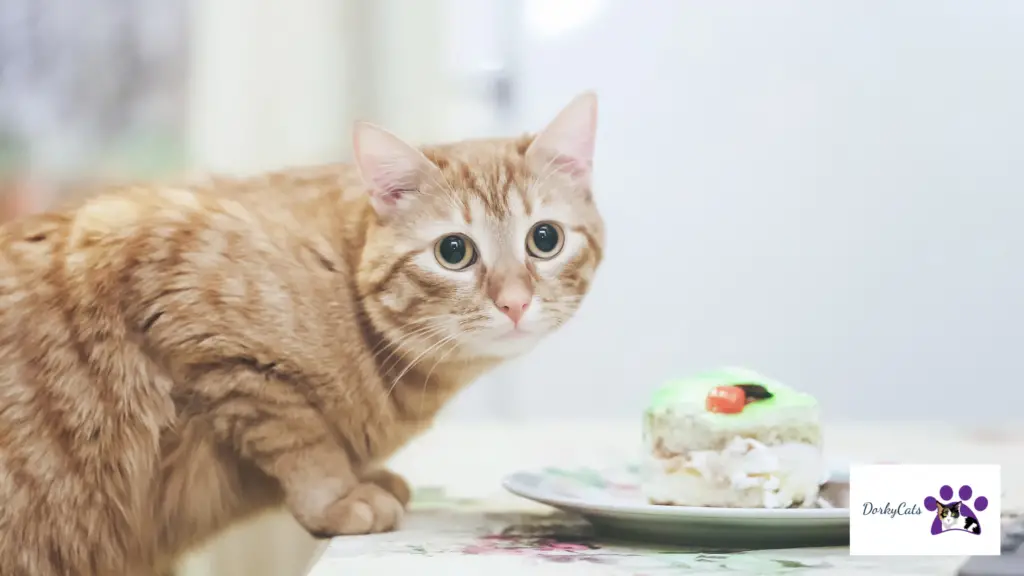
Cats should not eat cantaloupe seeds. The seeds contain small amounts of cyanide, which is toxic to cats and can cause digestive issues, such as vomiting and diarrhea. Additionally, the seeds can be a choking hazard to cats, so removing them is essential before offering the fruit to your pet.
CAN CATS EAT CANTALOUPE RIND?
Cats should not eat the rind of cantaloupe. The rind is tough and fibrous and can cause digestive issues, such as constipation or blockages if ingested. Additionally, the rind can be a choking hazard to cats, so removing it before offering the fruit to your pet is essential.
DO CATS LIKE CANTALOUPE?
Cats have varying tastes and preferences, so some may like cantaloupe while others may not. For example, some cats enjoy the sweet taste of cantaloupe and will readily eat it when offered, while others may be more indifferent or even reject it.
There are also a few theories about cantaloupe smelling like meat due to some element within this fruit responsible for its taste. The same elements (amino acids) are meat’s main elements.
If you want to offer cantaloupe to your cat, you can try offering a small piece as a treat and observe their reaction. If they seem to enjoy it, you can offer it in moderation as a treat. However, if they reject it or seem uninterested, it’s best not to force the issue and stick to their regular diet.
HOW MUCH CANTALOUPE CAN A CAT EAT?
Cats should only eat cantaloupe in moderation as a treat. The fruit is high in sugar and carbohydrates, which can lead to health issues such as obesity and diabetes if fed in large amounts.
A general guideline limits cantaloupe to 10% (or less) of a cat’s daily caloric intake. This would be equivalent to a small piece of cantaloupe (about 1-2 tablespoons) per day for an average-sized cat.
Every cat is different, and their dietary needs will vary based on factors such as age, weight, and activity level.
WHAT ARE THE HEALTH BENEFITS OF CANTALOUPE (IN GENERAL)?
Cantaloupe provides several potential health benefits when consumed as part of a balanced diet. Here are some of the key benefits of eating 100 grams of cantaloupe:
- Cantaloupe is over 90% water, making it an excellent source of hydration, especially during hot weather.
- Cantaloupe is rich in vitamin A, which is vital for good vision, healthy skin, and a strong immune system.
- Cantaloupe is also a good source of vitamin C, which is an antioxidant that helps protect against cellular damage and supports the immune system.
- Cantaloupe is a good source of fiber, which is important for digestive health and can help regulate blood sugar levels.
- Cantaloupe is a good source of potassium, which is important for maintaining healthy blood pressure and proper heart and muscle function.
It’s essential to keep in mind that the nutritional content of cantaloupe can vary depending on factors such as variety, ripeness, and growing conditions.
While cantaloupe can provide these potential health benefits when consumed in moderation, it’s still a high-sugar fruit and should be consumed in moderation as part of a balanced diet.
FREQUENTLY ASKED QUESTIONS
Is cantaloupe safe for cats?
Cantaloupe can be safe for cats to eat in moderation as a treat. The fruit is a good source of vitamins A, C, and potassium and can provide some health benefits for cats when offered in small amounts.
Can cats eat watermelon?
Yes, cats can eat watermelon in moderation. Watermelon is a low-calorie and hydrating fruit that provides some vitamins and minerals, such as vitamins A, B6, and C, and potassium. However, watermelon does contain sugar, so it should only be offered as a treat and not as a significant part of your cat’s diet.
Can cats eat pineapple?
Yes, cats can eat pineapple in small amounts as a treat. Pineapple contains vitamins and minerals such as vitamin C, manganese, and potassium.
Can cats eat honeydew?
Yes, cats can eat honeydew melon in small amounts as a treat. Honeydew melon is a low-calorie fruit that provides some vitamins and minerals, such as vitamins A, B6, and C, and potassium.
Can cats eat strawberries?
Yes, cats can eat strawberries in small amounts as a treat. Strawberries are a low-calorie fruit that provides some vitamins and minerals, such as vitamin C and manganese.
Can cats eat apples?
Yes, cats can eat apples in small amounts as a treat. Apples are low-calorie fruit that provides some vitamins and minerals such as vitamin C and fiber.

